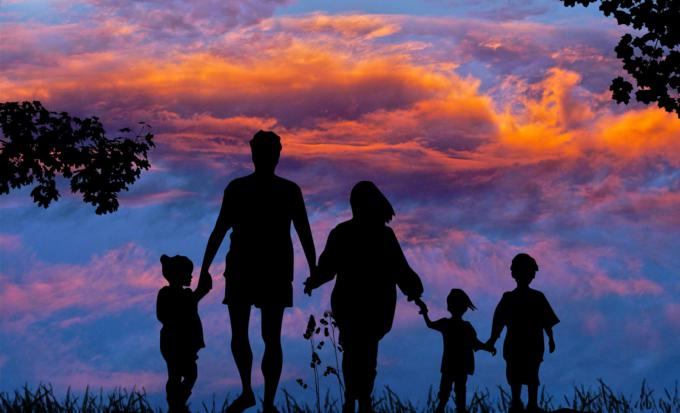
Faith
Our current anti-baby attitudes and trends have several causes. One is tied to the weakening of the traditional practice of first getting married and then having children. The first part, getting married, is rapidly going out of fashion.

Ryan
Can you pass a baby in a stroller and not smile? Chances are you can't. There is an international truism (translation: we have no solid data here) that claims that as a species, humans reflectively grin at an infant. Check on yourself the next time you're at the grocery store, or the mall or pass a mother and infant on the street. Then, watch how others respond to them.
Is this reflexive "smile-at-a-baby," even an unknown baby, just a goofy human quirk or just another of nature's sly way to continuing the human race? Or is it God's reminding us of His very first command to us in Genesis (1:28): "Be fruitful and multiply?" However, for whatever reason, more and more Americans are ignoring this message.
Warning: this column is not about the move in several state legislatures to pass laws that would allow abortions any time right up to birth and in some cases actual infanticide, putting a newborn to death if the mother and her doctors so decide. Nor do we intend to pour hot coals on the head of New York's Gov. Cuomo for his gleeful celebration at the signing of the Empire State's Reproductive Health Act, although that doesn't strike us such a terrible idea -- leave that to the voters of New York State and the governor's God. This column is about our deliberate rejection of bringing new life into our world.
In 1950, the average American mother had 2.1 children. The 2016 figure is 1.7 and trending lower. The number of U.S. births dropped by 2 percent between 2016 and 2017, to 60.2 births per 1,000 women ages 15 to 44. Among women ages 20 to 24, the decline was 4 percent. This is all part of a general downturn of the birth rate that started with the Great Recession of 2008, and which continues even to decline in spite of our rising economy.
Those few politicians who are thinking past their next election have noticed that this trend has frightening consequences. Our "social network," specifically the Social Security system, was built on very different population expectation. The idea was that American workers would be able to retire and be replaced by the next generation of workers.
Today, that plan is seriously in doubt. For instance, in 1950, for every retiree, there were 16 replacement workers paying into the system. Now, for every retiree, there are a mere 3 workers paying into the retirement system. The "baby deficit" has eroded our safety net big time! Americans are not alone. It is worse in Japan, where the "baby deficit" has reached dangerous proportions. As evidence, more diapers are sold for senior citizens than for babies.
Our current anti-baby attitudes and trends have several causes. One is tied to the weakening of the traditional practice of first getting married and then having children. The first part, getting married, is rapidly going out of fashion. Large numbers of young adults, particularly those without college degrees, have selected living together rather than formally going to the courthouse or the church. Many of these young people lack the skills to command a salary that they believe will enable them to establish a family. Even in the current economy, their futures look bleak and just living together, even temporarily, seems like the expedient solution. Although many still have children, most do not.
College graduates, for whom the current economy has been more generous, are marrying but later. They want, first, to establish their careers and then consider marriage. However, a huge barrier to getting married right out of college, let alone during college, is debt.
Today, 44 million U.S. college grads collectively owe $1.5 trillion in student loan debt. The average student in the graduating class of 2016 has $37,172 in student loan debt. That means the average couple contemplating marriage starts out with a lead weight $75,000-dollar obligation hanging over their heads. Imagine a young man desperate to marry the love of his life having to think, "I wonder how much debt she'll bring into this marriage?" What a romance-killer!
But still many couples make it to the altar, and, as night-turns-to-day, their thoughts turn to having a family. And then they stumble across the Department of Agriculture's, or some other agency's sobering statistic that the cost of raising a child born in 2015 through the age of 17 has reached $233,610. And, being good and loyal college grads, they want their Jack and/or Jill to follow them and go to college -- for how much?
The current hesitation or outright rejection of having children is based on more than economics. It is supported by cultural factors, too. For instance, it is rare to watch a movie or a TV sitcom where the always adorable baby isn't a huge cross for the parents -- spoiling intimate moments, soiling himself or destroying every precious thing in sight. But the message penetrates: Do we really want our already complicated life disrupted by a baby?
Then, there is the prevailing and pernicious belief that money equals happiness. Babies mean no more big toys. No more ski vacations. No season tickets. No trips to Florida or Paris. No zippy, two-seater sports car. Instead, a battered, used SUV with a baby seat or two.
As a nation, there is much we can do to stem what looks to be a devastating baby deficit facing us. Since the survival of our Social Security System depends on adequate numbers of "replacement workers" (today's babies), we ought to provide married parents with substantial child bonuses. Also, since feeding, clothing and caring for a child until adulthood is so financially demanding, parents should receive much more robust tax credits for the children.
Finally, Catholic parents need to spread the word about this universal wisdom about having children. Somehow, the older generation and our wealth-focused culture have failed to pass on core truths of human existence, truths like the sorrow and disappointment experienced by childless couples, particularly as they age. Or what a fascinating and surprising experience it is to raise children. And as they say: having grandchildren is life's reward for not killing your children.
So, after smiling at that baby in a stroller, give an even bigger smile to the young mother.
- Kevin and Marilyn Ryan, editors of "Why I'm Still a Catholic," worship at St. Lawrence Church in Brookline, Mass.
Recent articles in the Faith & Family section
-
Wounds, not scarsJaymie Stuart Wolfe
-
A special collection in the liturgy libraryFather Robert M. O'Grady
-
Witness to a Transfiguration in KenyaMichele Miers
-
Understanding the ScripturesScott Hahn
-
'Cabrini' does extraordinary job of bringing saint to lifeBishop Nicholas DiMarzio


















